West Asia Conflict: Impact on Indian Exports & Logistics
By Rediff Money Desk, New Delhi Oct 02, 2024 17:04
The escalation of conflict in West Asia is expected to disrupt trade, raise logistics costs, and impact oil, electronics, and agricultural exports from India.
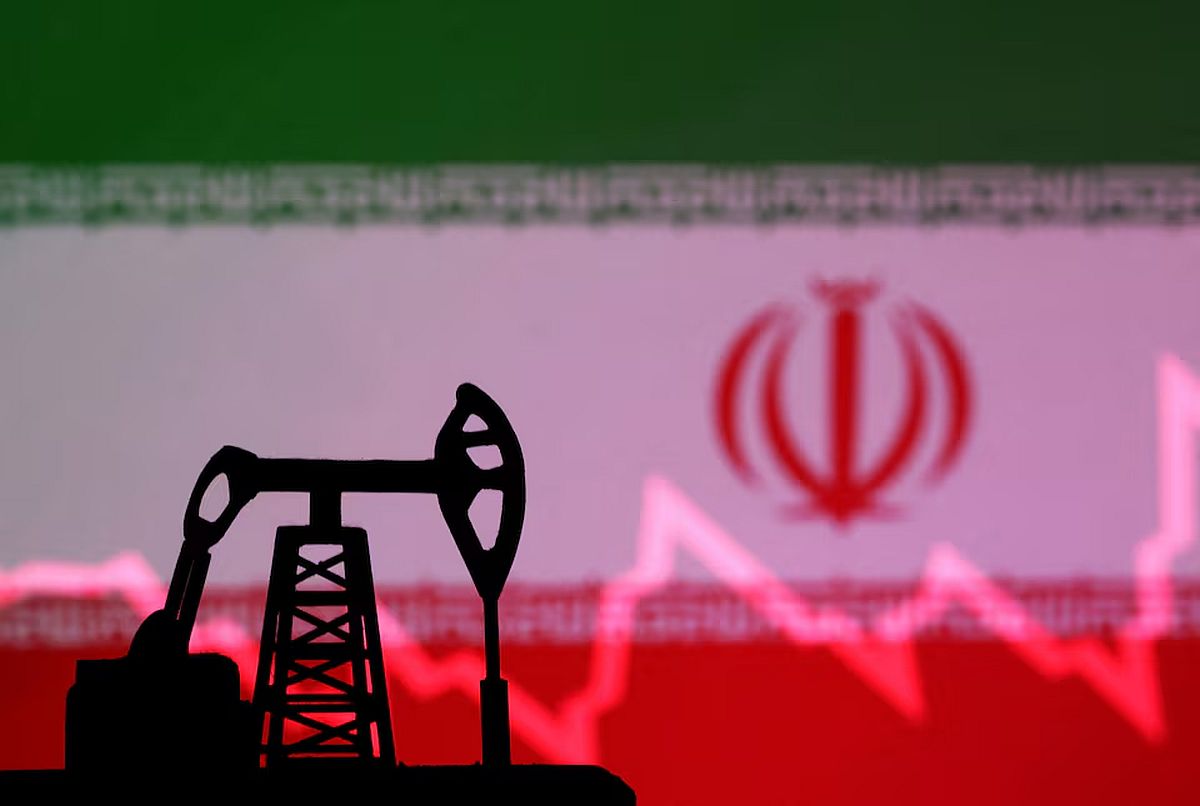
Photograph: Dado Ruvic/Reuters
New Delhi, Oct 2 (PTI) The escalation of conflict in the West Asian region is expected to push already high logistics costs besides hurting trade in sectors such as oil, electronics and agriculture, according to exporters.
They said that insurance costs for exports to the countries directly involved in the war could also go up, which will impact Indian exporters' working capital.
Think tank Global Trade Research Initiative (GTRI) stated that the conflict is already hurting India's trade with countries like Israel, Jordan, and Lebanon.
The Federation of Indian Export Organisations (FIEO) said the Iran-Israel conflict has the potential to significantly impact world trade and the global economy in several ways.
"Iran is a key player in the oil market. Any escalation in conflict could disrupt oil supplies, leading to higher prices, which would impact global economies, especially those reliant on oil imports. Oil prices have already moved up by USD 4 per barrel," FIEO DG Ajay Sahai said.
Expressing concerns, he said increased tensions could destabilize the Middle East, affecting trade routes like the Strait of Hormuz, through which a significant portion of the world's oil passes.
"Disruptions could lead to higher shipping costs and delays. Many global supply chains depend on the stability of the Middle East. Conflict could disrupt transportation and logistics, affecting industries ranging from electronics to agriculture," Sahai said.
Further, if the western world would put sanctions or trade restrictions, it would further complicate the global trade dynamics, he said adding "overall, the conflict could lead to increased volatility in global markets".
Hand Tool Association Chairman S C Ralhan said orders to these countries will be on hold and gradually it will be "very risky and difficult" to do trade in this region.
"Insurance costs will go up or even we may not get any insurance cover in that region," Ralhan said.
During January-July 2024, India's trade with countries directly impacted by the conflict has faced significant challenges.
"Exports to Israel dropped sharply by 63.5 per cent, Jordan saw a 38.5 per cent decline due to spillover effects, and Lebanon experienced a 6.8 per cent decrease," GTRI Founder Ajay Srivastava has said.
The Israel-Hamas war, which erupted in October 2023, has now extended to Lebanon, Syria, and is indirectly impacting Jordan and Iran.
Key regional players like Saudi Arabia, the UAE, Kuwait, and Qatar have thus far remained uninvolved in the conflict.
India's exports to Israel stood at USD 639 million during April-July this fiscal. It was USD 4.52 billion in 2023-24. Imports from Israel were USD 469.44 million during the first four months of this fiscal.
It was USD 2 billion in 2023-24.
India's exports to Iran stood at USD 538.57 million during April-July this fiscal. It was USD 1.22 billion in 2023-24. Imports from Iran were USD 140.69 million during the first four months of this fiscal. It was USD 625.14 million in 2023-24.
Similarly, the country's exports to Jordan stood at USD 228.56 million during April-July this fiscal. It was USD 1.46 billion in 2023-24. Imports from Jordan were USD 699.28 million during the first four months of this fiscal. It was USD 1.4 billion in 2023-24.
India's exports to Lebanon stood at USD 116.86 million during April-July this fiscal. It was USD 344.91 million in 2023-24. Imports from that country were USD 39 million during the first four months of this fiscal. It was USD 113 million in 2023-24.
India's major items of exports to West Asian countries include basmati rice, man-made yarn, fabrics, gems and jewellery, cotton yarn, and fabrics.
India is Israel's second-largest trading partner in Asia.
Though the bilateral merchandise trade is dominated mainly by diamonds, petroleum products, and chemicals, recent years have witnessed an increase in trade in areas such as electronic machinery and high-tech products, communications systems, and medical equipment.
They said that insurance costs for exports to the countries directly involved in the war could also go up, which will impact Indian exporters' working capital.
Think tank Global Trade Research Initiative (GTRI) stated that the conflict is already hurting India's trade with countries like Israel, Jordan, and Lebanon.
The Federation of Indian Export Organisations (FIEO) said the Iran-Israel conflict has the potential to significantly impact world trade and the global economy in several ways.
"Iran is a key player in the oil market. Any escalation in conflict could disrupt oil supplies, leading to higher prices, which would impact global economies, especially those reliant on oil imports. Oil prices have already moved up by USD 4 per barrel," FIEO DG Ajay Sahai said.
Expressing concerns, he said increased tensions could destabilize the Middle East, affecting trade routes like the Strait of Hormuz, through which a significant portion of the world's oil passes.
"Disruptions could lead to higher shipping costs and delays. Many global supply chains depend on the stability of the Middle East. Conflict could disrupt transportation and logistics, affecting industries ranging from electronics to agriculture," Sahai said.
Further, if the western world would put sanctions or trade restrictions, it would further complicate the global trade dynamics, he said adding "overall, the conflict could lead to increased volatility in global markets".
Hand Tool Association Chairman S C Ralhan said orders to these countries will be on hold and gradually it will be "very risky and difficult" to do trade in this region.
"Insurance costs will go up or even we may not get any insurance cover in that region," Ralhan said.
During January-July 2024, India's trade with countries directly impacted by the conflict has faced significant challenges.
"Exports to Israel dropped sharply by 63.5 per cent, Jordan saw a 38.5 per cent decline due to spillover effects, and Lebanon experienced a 6.8 per cent decrease," GTRI Founder Ajay Srivastava has said.
The Israel-Hamas war, which erupted in October 2023, has now extended to Lebanon, Syria, and is indirectly impacting Jordan and Iran.
Key regional players like Saudi Arabia, the UAE, Kuwait, and Qatar have thus far remained uninvolved in the conflict.
India's exports to Israel stood at USD 639 million during April-July this fiscal. It was USD 4.52 billion in 2023-24. Imports from Israel were USD 469.44 million during the first four months of this fiscal.
It was USD 2 billion in 2023-24.
India's exports to Iran stood at USD 538.57 million during April-July this fiscal. It was USD 1.22 billion in 2023-24. Imports from Iran were USD 140.69 million during the first four months of this fiscal. It was USD 625.14 million in 2023-24.
Similarly, the country's exports to Jordan stood at USD 228.56 million during April-July this fiscal. It was USD 1.46 billion in 2023-24. Imports from Jordan were USD 699.28 million during the first four months of this fiscal. It was USD 1.4 billion in 2023-24.
India's exports to Lebanon stood at USD 116.86 million during April-July this fiscal. It was USD 344.91 million in 2023-24. Imports from that country were USD 39 million during the first four months of this fiscal. It was USD 113 million in 2023-24.
India's major items of exports to West Asian countries include basmati rice, man-made yarn, fabrics, gems and jewellery, cotton yarn, and fabrics.
India is Israel's second-largest trading partner in Asia.
Though the bilateral merchandise trade is dominated mainly by diamonds, petroleum products, and chemicals, recent years have witnessed an increase in trade in areas such as electronic machinery and high-tech products, communications systems, and medical equipment.
Source: PTI
DISCLAIMER - This article is from a syndicated feed. The original source is responsible for accuracy, views & content ownership. Views expressed may not reflect those of rediff.com India Limited.
You May Like To Read
TODAY'S MOST TRADED COMPANIES
- Company Name
- Price
- Volume
- Spicejet Ltd.
- 68.13 (+ 6.95)
- 62494984
- Standard Capital
- 1.57 ( -5.99)
- 37998853
- Reliance Power L
- 51.10 (+ 4.99)
- 34453440
- Vodafone Idea L
- 10.18 ( -1.74)
- 34195940
- Evexia Lifecare
- 3.95 (+ 2.86)
- 23434531
MORE NEWS

Lava Agni 3: Smartphone with Rear Display...
Lava to launch Agni 3 smartphone series with a rear display on October 4. This...

Hetero & Gilead Partner for HIV Drug...
Hetero and Gilead have partnered to expand access to lenacapavir, a groundbreaking HIV...

Tesla Q3 Deliveries Rise: Price Cuts, Financing...
Tesla's global deliveries increased in Q3, driven by price cuts, financing deals, and...




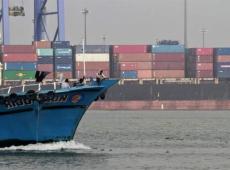
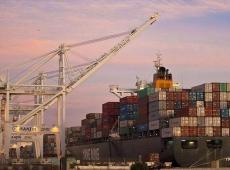
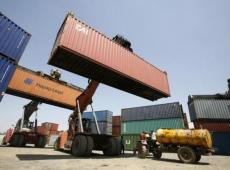
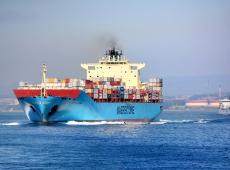
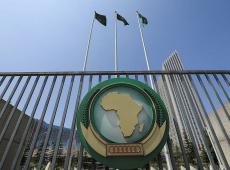
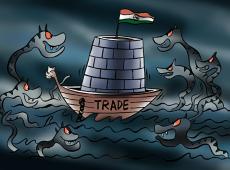
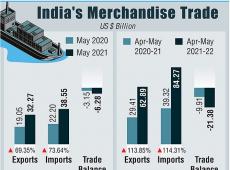
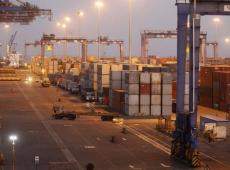
 © 2024 Rediff.com India Limited. All rights reserved.
© 2024 Rediff.com India Limited. All rights reserved.